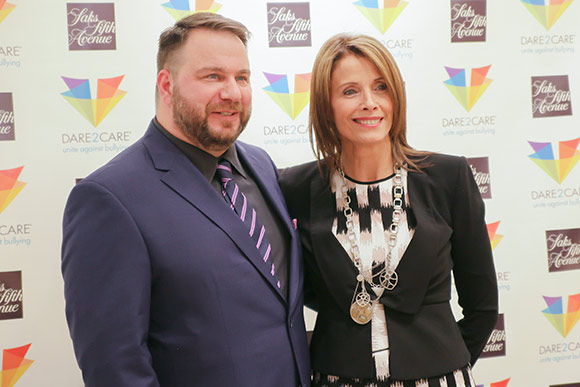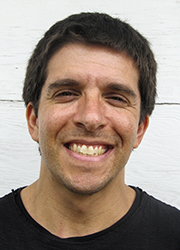Nonprofit tackles LGBTQ teen bullying
 Dare2Care co-founders, Don Wismer and Liz O'Donnell
Dare2Care co-founders, Don Wismer and Liz O'Donnell
"That's so gay" is a phrase common in most high-school settings, says Liz O’Donnell, co-founder of Dare2Care, a Cleveland nonprofit aiming to create a harassment-free environment for lesbian-gay-bisexual-transgender-questioning (LGBTQ) students.
The slur's casual nature, often used alongside words like "fag" or "dyke," typifies the many insidious ways LGTBQ students are bullied, says O'Donnell. According to the Human Rights Campaign, nine out of 10 students who identify as LGTBQ experience harassment and nearly two-thirds feel unsafe at school because of their sexual orientation.
Dare2Care is shedding light on what group officials believe is a hidden issue by training students as anti-bullying ambassadors. The goal is to inspire these young people to create communities free of harassment and intimidation.
"(LGBTQ) is often a taboo topic among school administrators," says O'Donnell, a mental health professional who launched the organization in 2011 with co-founder Don Wismer. "But students who attempt suicide are far more likely to identify as LGBTQ, or are perceived by their peers that way."
The nonprofit will endeavor to educate Greater Cleveland high school students on the importance of leadership and diversity through a free workshop on March 11 at St. Edward's High School. The workshop, held in partnership with the Global Youth Leadership Institute, will address color, culture and class, with participants encouraged to share their personal stories. About 90 students are expected to attend the program, along with 17 faculty members from representative private and public schools.
"We wanted to invite different schools that normally wouldn’t interact with one another,” says O'Donnell. "In that space, we'll already be creating a level of diversity that requires students to think differently."
Ideally, attendees will leave with an understanding of their personal identities, while recognizing their fellow students without the crutch of harmful stereotypes. The event, the second such program offered by Dare2Care, is reaching people at that critical stage of development where identity is being shaped, O'Donnell says. Those emerging from the workshop, meanwhile, will ostensibly have the tools to confront bullying in a non-punitive manner.
"Kids should be able to understand the impacts their words can have," says O'Donnell. "It's more than anti-bullying: We want to give students skills that allow them to make broader decisions in the larger world."

